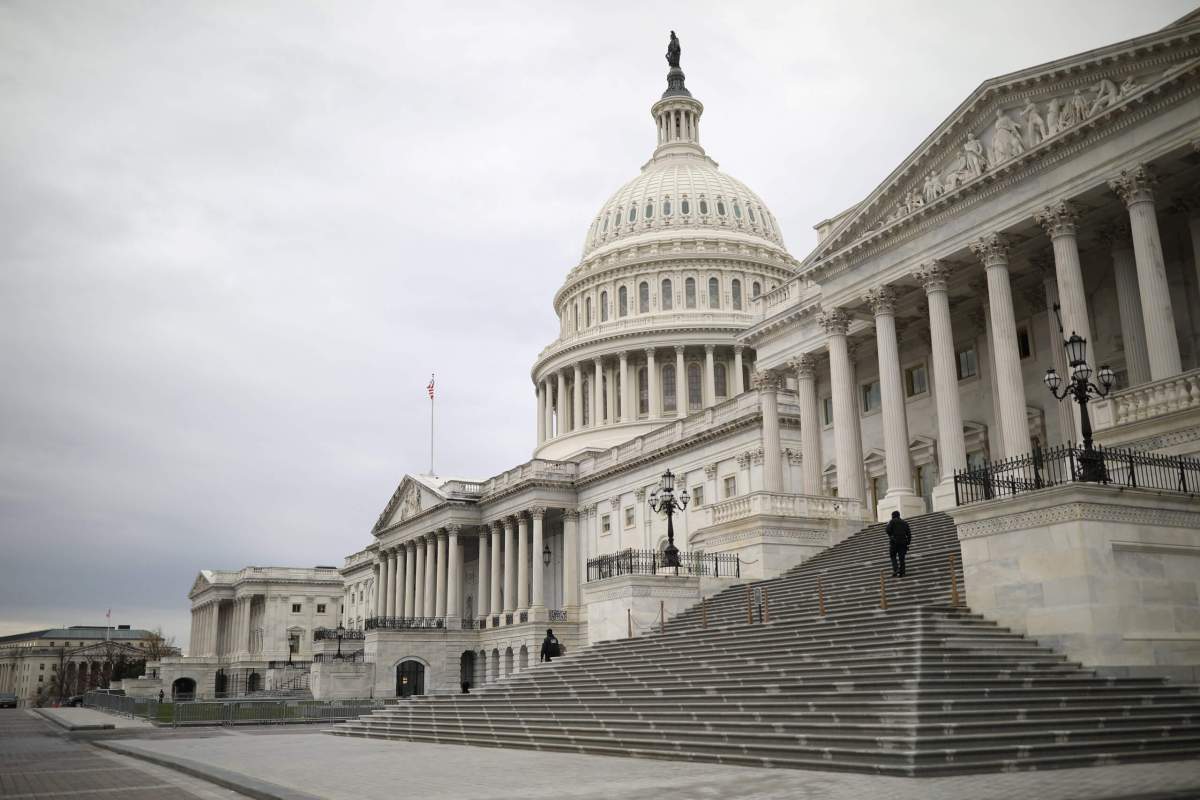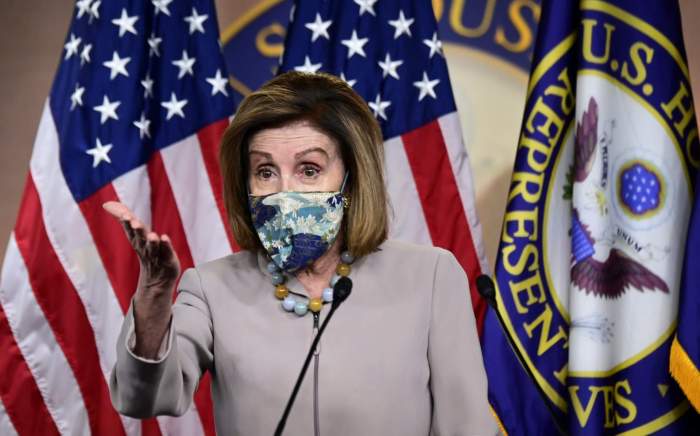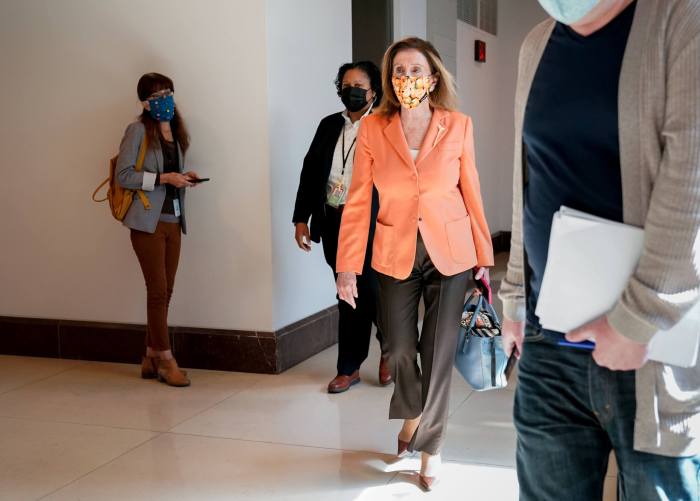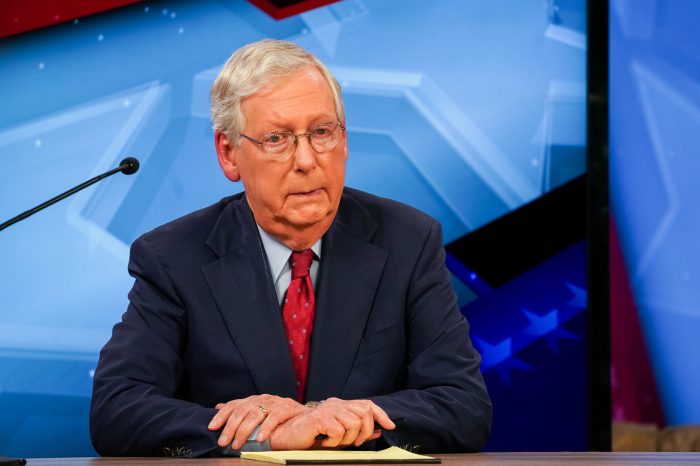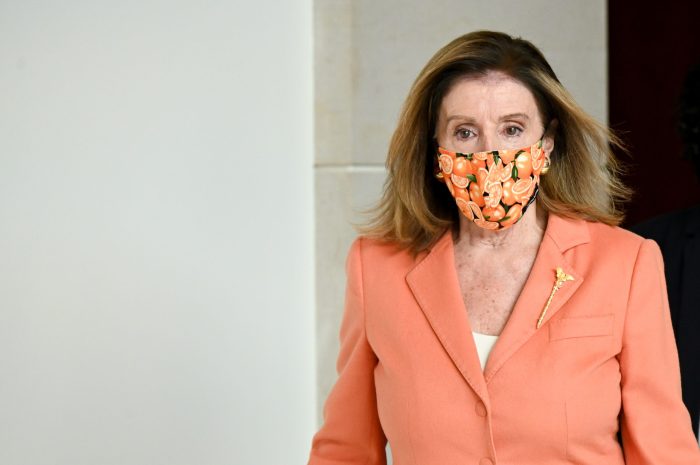By Susan Cornwell and Steve Holland, Reuters
Democrats in the U.S. Congress on Monday will try to push through pandemic relief payments of $2,000, in an effort to increase aid for Americans that has put the lawmakers in a rare alignment with President Donald Trump.
The Republican president last week threatened to block a $2.3 trillion pandemic aid and spending package if Congress did not boost stimulus payments from $600 to $2,000 and cut other spending.
Trump backed down from his demands on Sunday as a possible government shutdown brought on by the fight with lawmakers loomed.
But Democratic lawmakers who have a majority in the House of Representatives and have long wanted $2,000 relief checks and hope to use the point of agreement with Trump to advance the proposal – or at least put Republicans on record against it – in a vote on Monday.
It was unclear why Trump, who leaves office on Jan. 20 after losing November’s election to Democratic challenger Joe Biden, retreated from his threat to block the bill and signed it.
Global markets were buoyed after Trump approved the package. Wall Street’s main indexes hit record highs on Monday as Trump’s signing of the aid bill bolstered bets on an economic recovery and drove gains in financial and energy stocks.
Voting in Congress is expected to start late in the afternoon, and to run into the evening. Lawmakers will also seek to override Trump’s recent veto of a $740-billion bill setting policy for the Defense Department. If successful, that would be the first veto override of Trump’s presidency.
The House vote on stimulus checks will require a two-thirds majority, or more than 280 votes, meaning it would need Republican support to pass as the Democrats only have 233 seats in the chamber.
Many of Trump’s fellow Republicans, who control the Senate, oppose the higher relief payments, and Trump may not have the influence to budge them.
Georgia Republicans Kelly Loeffler and David Perdue, who face crucial Senate runoffs next month that could determine who controls the chamber, welcomed Trump’s move, without saying whether the payments should be increased.
“Thanks to President Trump’s leadership, COVID relief is again on its way to millions of Georgia families and businesses who need it most,” they said in a joint statement that echoed Trump in criticizing the Democrats for prioritizing “wasteful, irresponsible spending over the welfare of the American people.”
Trump played golf in Florida on Monday and has remained out of public view even as a government crisis loomed.
After signing the bill behind closed doors at his beachside club in Florida, Trump sought to put the best face on his climb-down, saying he was signing it with “a strong message that makes clear to Congress that wasteful items need to be removed.”
“Much more money is coming,” he said in a statement, though he provided nothing to back this promise.
BITTER HOLIDAY
Americans are living through a bitter holiday season with a pandemic that has killed nearly 330,000 people in the United States and a daily death toll now well over 3,000, the highest since the pandemic began.
Unemployment benefits being paid out to about 14 million people through pandemic programs lapsed on Saturday but will be restarted now that Trump has signed the bill.
The delay, however, forced people to lose a week of some federal jobless aid that had been extended under the measure, Washington Governor Jay Inslee said, even as he and other governors in both parties welcomed the bill’s signing.
The relief package extends a moratorium on evictions that was due to expire on Dec. 31, refreshes support for small-business payrolls, provides funding to help schools re-open and aid for the transport industry and vaccine distribution.
It includes $1.4 trillion in spending to fund government agencies and avert a government shutdown that would have begun on Tuesday had Trump not signed the legislation.
Carroll Swayze, 65, an independent artist based in Florida, said the extension of unemployment benefits was only a temporary reprieve for people who have lost all of their income due to the pandemic. She said she had never claimed unemployment until this year, when art shows around the country where she sells her paintings were canceled.
The COVID relief Trump signed on Sunday extends only until mid-March the $113 a week Swayze gets from Pandemic Unemployment Assistance, and gives her an additional $300 a week, also until mid-March.
“It’s a desperate situation for everybody. It’s not going to be enough,” she said, adding that many artists were leaving their homes or facing eviction. “No one was prepared for this,” she said.



